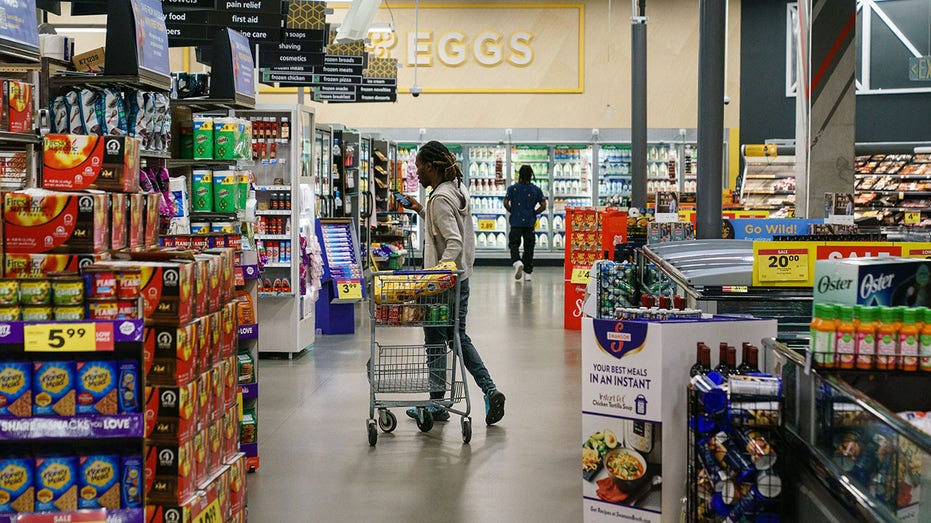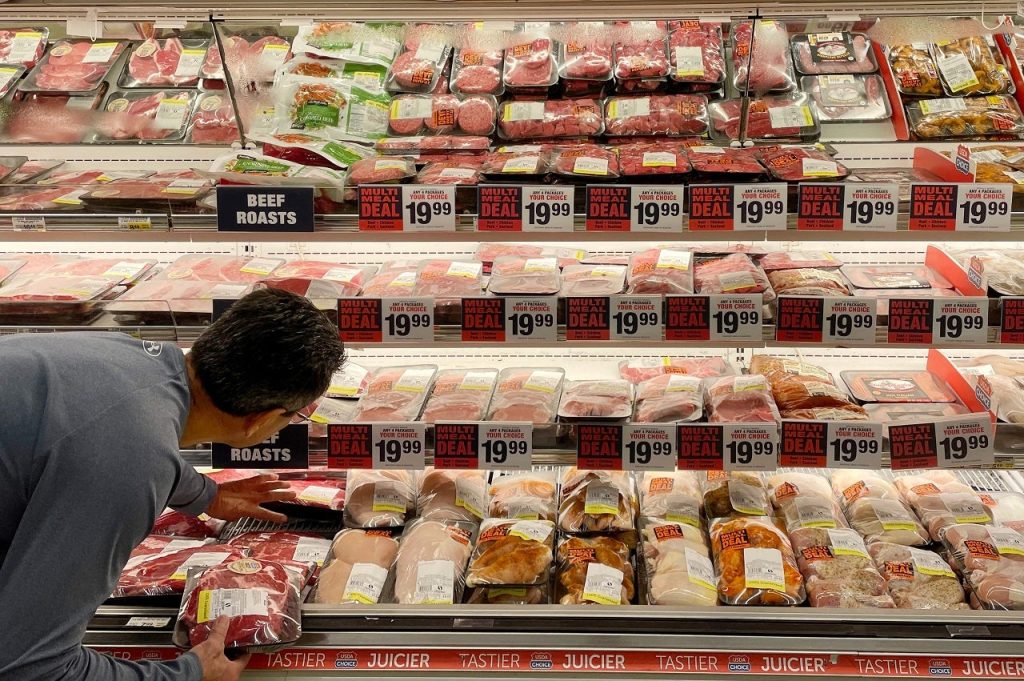A high-stakes inflation report due Wednesday is expected to show that price pressures within the economy remained strong last month despite an aggressive interest rate hike campaign by the Federal Reserve.
Economists expect the consumer price index, which measures a basket of goods, including gasoline, health care, groceries and rent, to show that monthly prices rose 0.4% in April, up from the increase of 0.1% recorded the previous month. On an annual basis, inflation is projected to have climbed 5%, unchanged from March but down from a peak of 9.1% in June.
That remains nearly three times higher than the pre-pandemic average, the latest evidence that inflation is “moderating at a snail’s pace,” Bank of America economist Michael Gapen said.
Other parts of the report are also expected to point to a slow retreat for inflation, a worrisome sign for the U.S. central bank. Core prices, which exclude the more volatile measurements of food and energy, are expected to climb 0.4% or 5.5% annually, suggesting that underlying price pressures remain strong.
HOW THE BANKING CRISIS COULD HAMMER SMALL BUSINESSES
“As we have been saying for some time now, we expect that slowing economic activity will trigger a material deceleration in inflation, but the path back to 2% will be long and bumpy,” Wells Fargo analysts wrote in a note Friday.
Consumers were likely squeezed last month in the form of higher food and gasoline prices. Analysts expect that groceries posted another cost increase as major companies like PepsiCo, Nestle and Unilever announced price hikes in their most recent quarterly earnings calls.
DEBT CEILING DEADLINE IS CLOSER THAN PREVIOUSLY EXPECTED – HERE’S WHY
On top of that, gas prices spiked in early April after OPEC+ unexpectedly slashed oil production; AAA data indicates daily gas prices rose by 5.2% in April from the previous year.
“Unfortunately, it has been like watching the financial equivalent of a car wreck,” said Mark Hamrick, an economic analyst at Bankrate. “Between the spikes in gasoline, food and shelter prices, there has been no shortage of sources of aggravation associated with inflation for many months now. This tension is easing but hasn’t gone away.”
The Federal Reserve is closely watching the report for evidence inflation is finally subsiding as policymakers try to cool the economy with a series of aggressive interest rate hikes. Officials approved the 10th straight rate increase last week, lifting the benchmark federal funds rate to a range of 5% to 5.25%, the highest since 2007.
FED RAISES INTEREST RATES A QUARTER POINT, HINTS AT POSSIBLE PAUSE
But central bankers also opened the door to a long-awaited pause in the tightening cycle, although they stressed that it hinged on upcoming economic data.

The Fed is also taking into consideration other economic indicators, including job growth and consumer inflation expectations. In a potentially worrisome sign for the central bank, both hiring and wage growth came in stronger-than-expected last month.
The April jobs report showed employers added 253,000 jobs in last month, and the unemployment rate ticked down to 3.4%, the lowest since 1969.
Read the full article here
